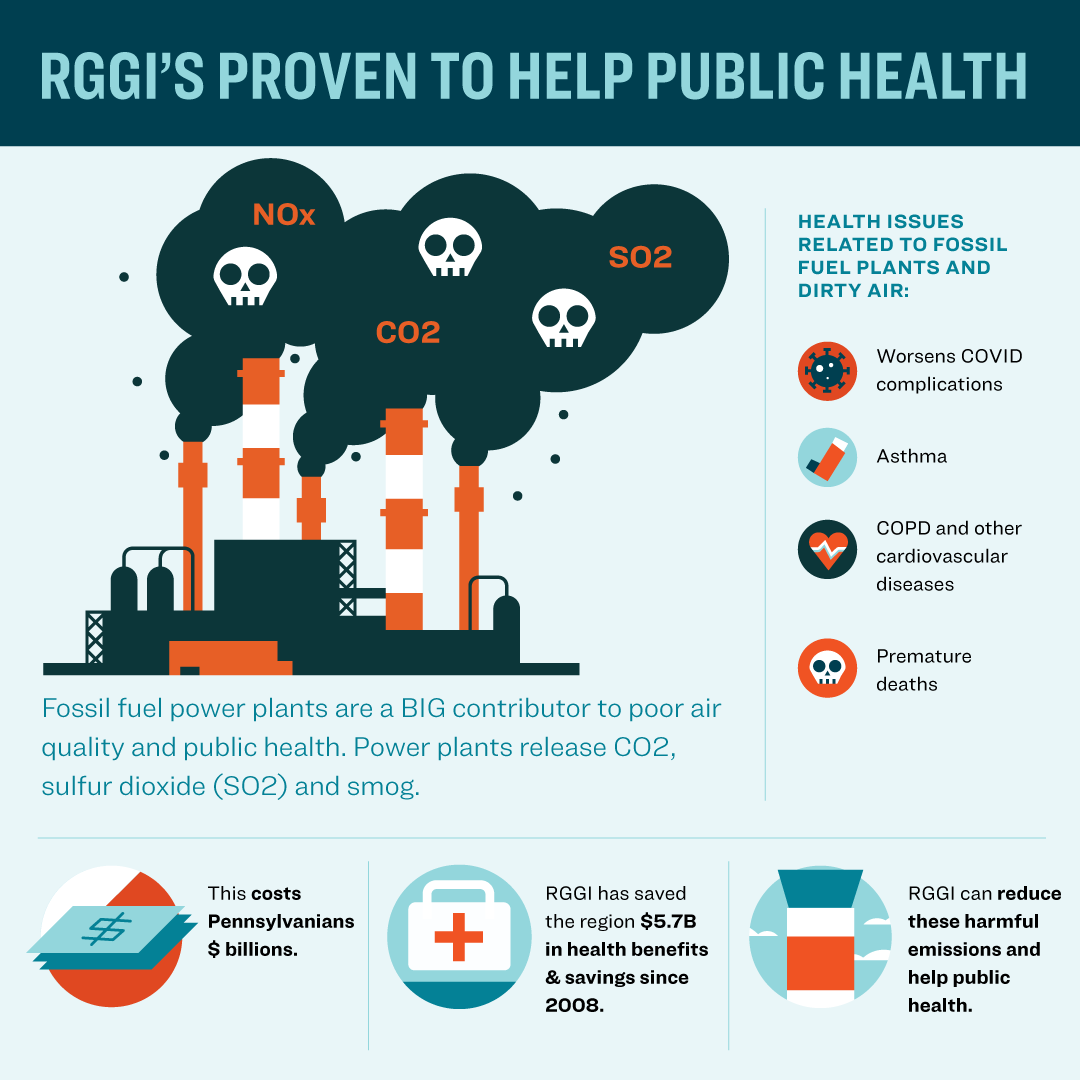
A Post on Pennsylvania Senate Bill 119 (2021)
“Change is coming, whether we seek it or not.” Those words from the United Mine Workers’ Document, Preserving Coal Country tells the reality of the energy future in the United States. While not agreeing with everything in the UMW’s paper, such items like a Federal Tax Break (45Q) for carbon capture and keeping communities together is something we can all agree on. The UMW paper and the $38 billion identified by the Biden Administration to help communities transition away from fossil fuels underscores the reality that climate change is real, and we are amid an energy transition. We must do all that we can to create new family-sustaining jobs, defend our children’s health from fossil fuel pollution, and account for the actual cost of energy production.
Unfortunately, SB-119’s not so secret intent is to bury the Regional Greenhouse Gas Initiative (RGGI). Bolstering this goal has been the rallying cry of by some in Harrisburg of unfair job losses in our Commonwealth. The reality is that coal plants will close in Pennsylvania, period. As the current draft RGGI standards being written by the Department of Environmental will take at least a minimum of two years to take effect, RGGI will not likely hasten coal’s demise–that’s already occurring. Back in 2015, Appalachian Power’s (WV) then-President Charles Patton said, “You just can’t go with new coal [plants] at this point in time. It is just not economically feasible to do so…. the economics of alternatives to fossil-based fuels are making inroads in the utility plan. Companies are making decisions today where they are moving away from coal-fired generation.”
What RGGI could do, if the Legislature would acknowledge the reality of the energy market, economics, science, and new job creation, is supply a new revenue stream to help coal and other fossil fuel workers build new skilled careers that will support families. RGGI funds could in part help families and create good-paying new employment.
It’s well past time to transition to a clean energy economy. Pennsylvania can no longer continue in the dark with dependence on dirty fossil fuels. Today we can have both the energy to power our economy and a clean environment. We no longer must choose between a strong economy and the life and health of our children, including the unborn. One in nine women give birth prematurely in the United States each year due to soot (PM2.5), with the number increasing to one in five for Black women (35% of premature infants die). Over 2,700 Pennsylvanians died prematurely in 2018 due to Pennsylvania’s air pollution, due in good measure to the electric generating industry. Pennsylvania’s pollution contributes to more than 2,300 premature deaths in other states. All told, Pennsylvania holds the auspicious claim of having the third-highest rate of air pollution-related deaths in the U.S., after California and New York.
RGGI would defend our children’s health and over 30,500 pro-life Pennsylvania Christians who have called for joining RGGI to help our kids:
“As a pro-life Christian, I am deeply concerned that pollution harms unborn and born children and causes damage that lasts a lifetime. Dirty air has grave consequences for the health of our children and other vulnerable populations, like the elderly. That’s why I support Governor Wolf’s plan to join the Regional Greenhouse Gas Initiative that will apply market-based solutions to reduce the health impacts from power plant pollution, helping boost jobs and save precious lives in Pennsylvania.”
As evangelical Christians, the Bible stays our authoritative text and as Psalm 82: 3-4 (NIV) states:
Defend the weak and the fatherless;
uphold the cause of the poor and the oppressed.
Rescue the weak and the needy;
deliver them from the hand of the wicked.
Our children are the most susceptible to the fossil fuel pollution’s ravages and its past time to stand up for our kids’ health today and their tomorrow’s future.
The Bible also seems to recognize market-based economies, but commands honesty and fairness – something the fossil fuel industry has ignored forever.
“‘Do not use dishonest standards when measuring length, weight or quantity. Use honest scales and honest weights, an honest ephah and an honest hin. I am the Lord your God, who brought you out of Egypt.” –Leviticus 19:35-36 (NIV)
For over a century, the fossil fuel industry has received help from a dishonest measurement of costs. They have privatized the profits while the cost has been borne in the lungs, hearts, minds, and even lives of our children. This mass market failure continues into today as the external costs of fossil fuels continue to go ignored and unaccounted for, thereby creating a dishonest standard and false measurements.
To quantify these costs, Muller et. al. state that, “the largest industrial contributor to external costs is coal-fired electric generation, whose damages range from 0.8 to 5.6 times value added.” A more recent economic study finds the average external cost for various fuels:
| Coal | 14.87 US cent/kWh |
| Oil | 13.57 US cent/kWh |
| Gas | 05.02 US cent/kWh |
| Nuclear | 08.63 US cent/kWh |
| Wind | 00.20 US cent/kWh |
| Solar | 00.57 US cent/kWh |
The market has failed in fairness, honesty, and truth when it comes to fossil fuel energy production. The Regional Greenhouse Gas Initiative (RGGI) will help correct this market failure. If this committee truly values conservative principles, it must stop this injustice by not moving this Bill forward. Instead of veiled attempts to halt or cancel RGGI, I urge this committee to work with the Governor and design a comprehensive RGGI plan that will use the proceeds to aid workers in transition, support those who have suffered the worst impacts of fossil fuel pollution and continue the development of a clean energy future that benefits our children now and in the future.






